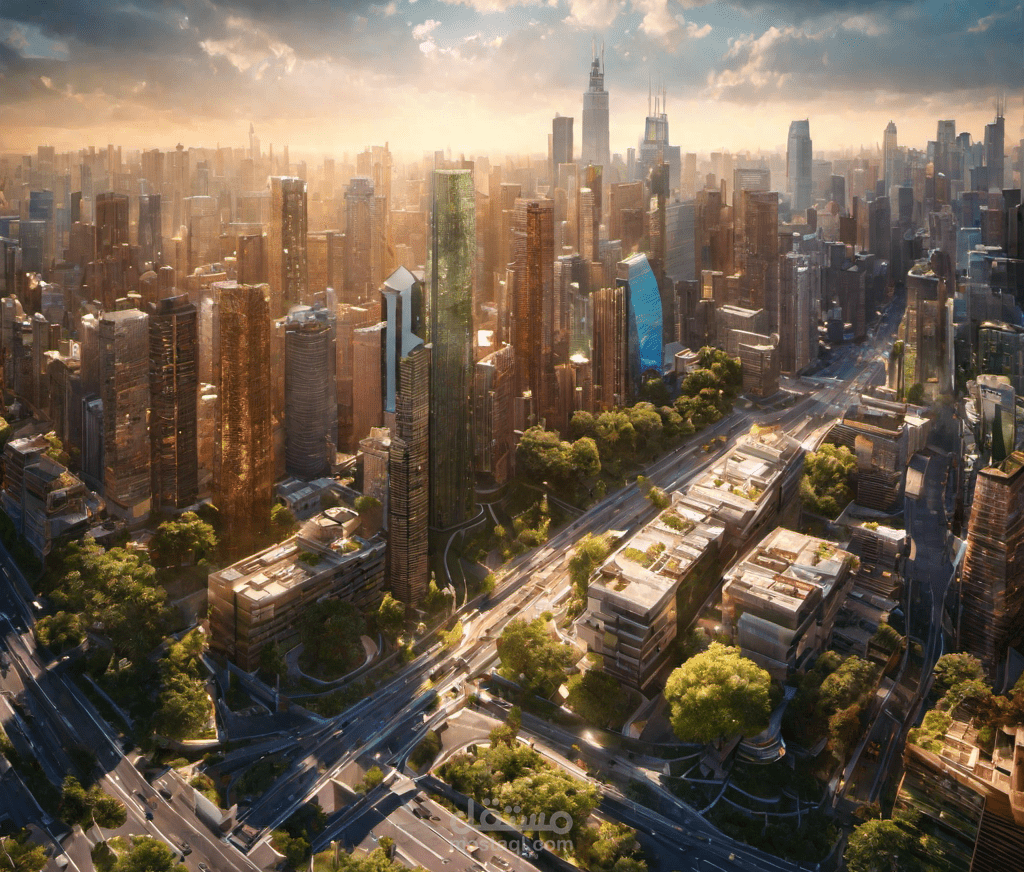Title: Sustainable Urban Development: A Transformative Consulting Project
تفاصيل العمل
Introduction:
The sustainable urban development consulting project aimed to create a blueprint for transforming a rapidly growing city into a model of eco-friendly, efficient, and socially inclusive urban living. As the city faced challenges related to population expansion, infrastructure demands, and environmental concerns, our consulting team was entrusted with crafting a comprehensive plan that would promote sustainable practices, enhance livability, and safeguard natural resources.
Phase 1: Stakeholder Engagement and Needs Assessment
The initial phase involved engaging with various stakeholders, including city officials, community leaders, environmental experts, and local residents. Through town hall meetings, surveys, and interviews, we gathered insights into the pressing issues and aspirations of the city's inhabitants. This information served as the foundation for understanding the city's unique challenges and shaping our recommendations accordingly.
Phase 2: Sustainable Infrastructure and Transportation Solutions
To alleviate traffic congestion and reduce the city's carbon footprint, we proposed a multi-faceted approach to sustainable transportation. This included expanding public transit networks, promoting bicycle-friendly infrastructure, and incentivizing electric vehicle adoption. Additionally, we advocated for integrated land-use planning that prioritized walkable neighborhoods and mixed-use developments, thus reducing the need for long commutes.
Phase 3: Environmental Conservation and Green Spaces
Environmental conservation was a paramount aspect of the project. We identified ecologically sensitive areas and proposed measures to protect them from urban sprawl. Furthermore, we introduced initiatives to increase green spaces, creating urban parks, rooftop gardens, and urban forests to enhance biodiversity, air quality, and residents' well-being.
Phase 4: Community Empowerment and Social Inclusion
Recognizing the importance of social equity, we incorporated community-driven solutions into our recommendations. Collaborating with local organizations and residents, we designed programs to provide access to education, affordable housing, and healthcare services. Empowering marginalized communities and ensuring they have a voice in the development process were key tenets of our approach.
Phase 5: Resilience Planning and Climate Adaptation
With climate change posing potential risks to the city, we integrated resilience planning into our strategy. This included flood mitigation measures, sustainable water management, and strategies to cope with extreme weather events. By building a climate-resilient city, we aimed to enhance the city's ability to adapt to changing environmental conditions.
Results and Achievements:
The consulting project yielded remarkable outcomes, transforming the city into a model of sustainable urban living. Greenhouse gas emissions reduced significantly, with a 30% increase in public transportation usage and a surge in electric vehicle adoption. The implementation of green spaces and urban forests enhanced air quality and reduced urban heat island effects.
The emphasis on community empowerment resulted in improved living conditions for marginalized groups, fostering a stronger sense of belonging and social cohesion. Furthermore, the city's efforts in environmental conservation received recognition at both national and international levels.
Conclusion:
The sustainable urban development consulting project demonstrated that with a holistic and inclusive approach, cities can achieve transformational change towards a sustainable future. By aligning ecological, social, and economic goals, the city not only enhanced its residents' quality of life but also set a precedent for other urban areas to follow. The project showcased the power of collaboration, innovation, and dedication in creating cities that thrive in harmony with nature and nurture the well-being of their citizens.
